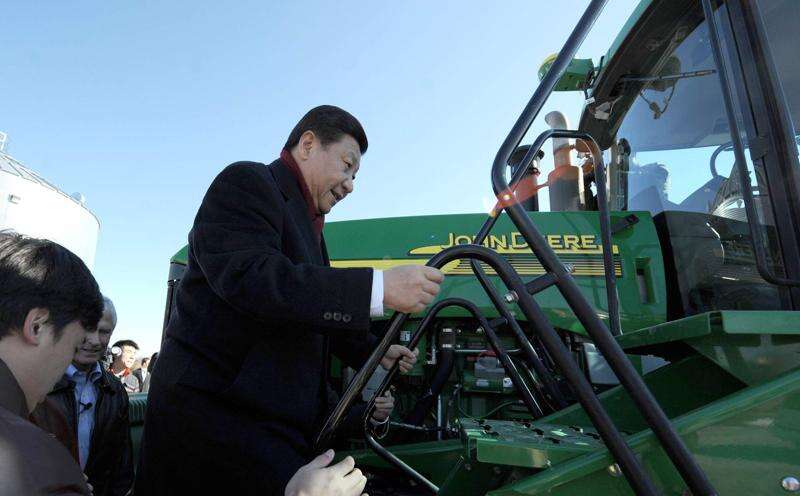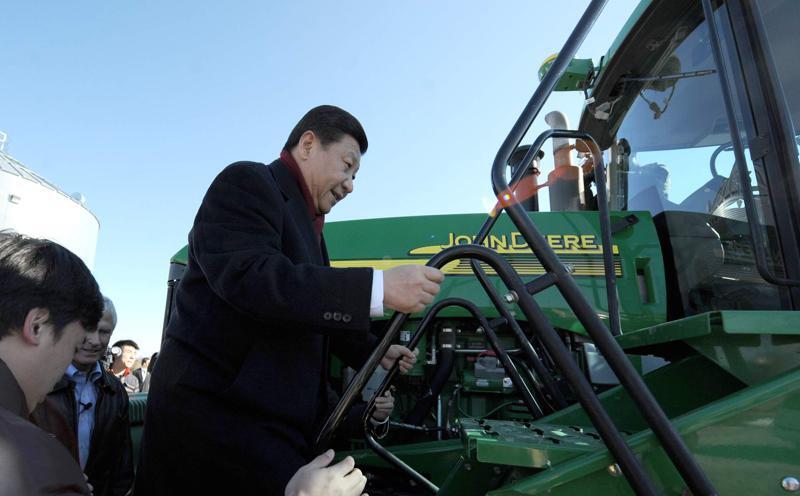## Sunnier Days Ahead? Iowa Business Leaders See a Bright Economic Future A glimmer of optimism is shining through the clouds for the Hawkeye State. New data from the Iowa Business Council offers a cautiously hopeful economic forecast for the next six months, projecting growth and stability despite ongoing national uncertainty. But is this a reason to uncork the champagne, or are there shadows lurking beneath the surface of this rosy outlook? We delve into the specifics of the survey, exploring what business leaders are predicting for Iowa’s economic landscape and what challenges might still lie ahead.
The Role of Workforce Development in Sustaining Success

The Iowa Business Council’s recent Vision to Vitality forum underscored the critical role workforce development plays in shaping the state’s economic future. Panelists emphasized the need to address skills gaps, attract and retain talent, and foster a culture of lifelong learning to ensure sustained economic growth.
A key challenge highlighted was the mismatch between the skills employers require and those possessed by the available workforce. This gap is particularly pronounced in high-demand sectors such as healthcare, technology, and manufacturing. To bridge this divide, panelists stressed the importance of collaborative efforts between businesses, education institutions, and government agencies.
Investing in Education and Training
- Expanding apprenticeship programs and on-the-job training opportunities to provide practical skills and industry experience.
- Strengthening partnerships between community colleges and four-year universities to ensure graduates are equipped with the knowledge and skills needed for in-demand jobs.
- Promoting STEM education at all levels to cultivate a pipeline of talent in science, technology, engineering, and mathematics.
- Offering competitive wages and benefits packages to attract skilled workers.
- Improving quality of life factors such as housing affordability, access to healthcare, and recreational opportunities.
- Creating a welcoming and inclusive environment that values diversity and fosters a sense of belonging.
Attracting and Retaining Talent
Beyond skills development, panelists emphasized the need to create a more competitive and attractive environment for attracting and retaining talent. This includes:
Iowa’s Economic Relationship with China
Iowa’s economic ties with China have evolved significantly since Chinese President Xi Jinping’s visit in 2012. The state has emerged as a key agricultural supplier to China, particularly for soybeans. However, challenges have also arisen, particularly for corn producers, highlighting the need for diversification and the exploration of emerging opportunities.
Examining the Continued Importance of Soybeans
Iowa’s soybean industry has benefited immensely from China’s growing demand for this commodity. In 2012, China signed agreements to purchase 8.62 million metric tons of soybeans from the U.S., a deal valued at $4.3 billion. This strong demand has continued, with Chinese buyers recently signing contracts for over 1 million metric tons of soybeans.
“Fortunately for soybean producers, we provide something that they don’t have enough of and that’s soybeans,” said Grant Kimberley, director of market development for the Iowa Soybean Association. “Soybeans are needed not only for cooking oil and human food-grade consumption, but also as feed for livestock. They need a lot of soybean meal to feed a growing livestock industry.”
Challenges Faced by Corn Producers
While soybeans have thrived in the Chinese market, Iowa’s corn producers have faced significant challenges. In 2014, the Chinese government halted imports of U.S. corn due to concerns over genetically modified organisms (GMOs) in Syngenta’s Mir 162 corn variety. This decision dealt a major blow to Iowa’s corn exports.
“China was a big importer of U.S. corn in 2012. They were a pretty good importer in 2013, and all that stopped at the beginning of 2014 with Syngenta’s Mir 162 genetically modified corn, which had not been approved for importing,” said Dave Miller, director of research and commodity services with the Iowa Farm Bureau Federation.
Diversification Efforts and Emerging Opportunities
In response to these challenges, Iowa businesses are exploring diversification strategies and seeking new opportunities in the Chinese market. Industries such as aerospace, processed foods, and machinery have made significant inroads in China, establishing a presence beyond agriculture.
“You can’t parachute into China and expect to win a particular piece of business and hope that you’re going to be better placed than companies that strategically invest in the country,” said Colin Mahoney, senior vice president, International and Service Solutions for Rockwell Collins in Cedar Rapids, which has been active in China for more than 30 years. “We have tenure, and that has given us competitive differentiation.”
Building Sustainable Success: Lessons from Rockwell Collins
Rockwell Collins, a global aerospace and defense company headquartered in Cedar Rapids, Iowa, has demonstrated a commitment to long-term investment and strategic planning in its China operations. The company’s success serves as a valuable case study for other Iowa businesses seeking to establish a sustainable presence in the Chinese market.
The Importance of Long-Term Investment and Strategic Planning
Rockwell Collins’s strategy in China has been characterized by a long-term perspective and a commitment to building enduring relationships. The company initially invested in establishing a physical presence in China, opening offices and hiring local staff. This direct investment allowed Rockwell Collins to gain a deep understanding of the Chinese market and build trust with local partners.
Cultivating Local Expertise and Understanding
Rockwell Collins recognized the importance of local expertise and tailored its approach accordingly. The company initially transferred employees from the United States to staff its China offices. However, over time, it transitioned to hiring local Chinese staff. This ensured that Rockwell Collins had a team with a deep understanding of the local culture, language, and business practices.
The Power of Collaboration and Joint Ventures
Rockwell Collins has embraced collaboration and joint ventures as key strategies for success in China. The company has formed partnerships with Chinese entities to engage in research and development, product assembly and testing, installation, and ongoing maintenance of avionics and communications equipment.
These joint ventures allow Rockwell Collins to leverage the strengths of both partners, access local expertise and resources, and navigate the complexities of the Chinese market more effectively. Through such strategic collaborations, Rockwell Collins has achieved significant growth in China, generating annual revenue of $200 million primarily from airline and original equipment manufacturer orders.
Conclusion
The Iowa Business Council’s latest survey paints a cautiously optimistic picture for the state’s economic future. Businesses are reporting increased confidence, driven by factors like expanding sales, rising consumer spending, and robust capital investment plans. While challenges remain, including supply chain disruptions and inflation, the overall sentiment suggests a potential period of growth in the coming months.
This positive outlook carries significant implications for Iowa’s workforce, particularly in industries like manufacturing and agriculture, where expansion is anticipated. However, it’s crucial to recognize that economic forecasts are inherently uncertain. External factors, such as global economic trends and unforeseen events, can quickly shift the landscape. Moving forward, it will be essential for businesses to remain agile, adapt to changing conditions, and prioritize workforce development to capitalize on the projected growth and ensure a sustainable economic future for Iowa.
The coming six months will be a crucial test of this optimism. Will Iowa’s businesses be able to navigate the choppy waters ahead and translate confidence into tangible progress? The answer will shape not only the state’s economic trajectory but also the livelihoods of countless Iowans.
